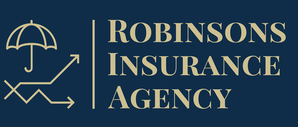Robinsons Insurance Agency Blog |
|
Medical clinics need various insurance policies to stay compliant and protect themselves from potential risks. The types of insurance needed vary depending on the structure and activities of the clinic but typically include professional liability (also known as malpractice or errors & omissions) insurance, general liability insurance, property insurance, workers’ compensation, cyber liability security coverage, employment practices liability, and directors’ & officers’ (D&O) liability. Professional Liability InsuranceThis policy covers legal fees if an action is brought against the clinic for negligence resulting in bodily injury or property damage to a third party. Professional liability insurance for medical clinics is critical to protect against potential lawsuits. The coverage can help shield clinic owners from financial losses associated with any errors or negligence that may occur while providing care. This type of insurance also covers defense costs related to legal action, as well as settlements and judgments if the case goes to court. Professional liability insurance helps ensure that clinics remain in business, even if they become subject to costly litigation. At a minimum, professional liability insurance should cover medical malpractice claims, breach of contract allegations, personal injury allegations, and slander/libel claims. It’s important to note that this type of coverage will not protect a practice from all types of risks—it doesn’t cover employee-related risks or property damage. In addition, some types of clinics may need specialized insurance for certain areas of practice such as psychiatry or physical therapy. General Liability InsuranceGeneral Liability Insurance provides coverage for medical clinics if they are sued by a patient or visitor due to bodily injury or property damage caused by the clinic’s operations. This type of insurance covers legal costs, medical expenses, and damages awarded in court cases related to these claims. By having General Liability Insurance, medical clinics can remain financially secure should any legal issues arise due to their services or products. This type of insurance can help reduce the risk of large settlements resulting from such cases and protect them from financial ruin. It is important to note that while it can be a helpful form of protection, it does not provide full coverage and should be supplemented with other forms of insurance as well. Overall, General Liability Insurance is an important form of financial protection for medical clinics. It can help them remain financially secure in the face of legal claims or lawsuits brought forth against them due to their services or products. While it does not provide full coverage, it should still be considered when looking for ways to protect a clinic from costly settlements and potential financial ruin. Property InsuranceProperty insurance for medical clinics is designed to protect the physical building and its contents, as well as any other assets belonging to the clinic. This insurance can cover property damage due to natural disasters, theft, vandalism, or accidental destruction. It can also include coverage for business interruption in cases where operations are disrupted due to a covered event. In addition, personal property like furniture, office equipment, and supplies may be protected from loss or damage with this type of policy. Given that medical clinics house sensitive information and expensive equipment such as computers and X-ray machines, it's important for them to have adequate coverage in place. Property insurance can help ensure that a clinic can continue providing quality care should any unexpected events occur. It can also provide much-needed financial protection in case of a lawsuit or other legal action. Property insurance for medical clinics may vary, depending on the type and scope of coverage desired. For example, certain policies may offer replacement cost coverage that pays out the full cost to replace items with new ones at current market prices. Other policies may include additional coverages such as flood insurance, liability protection, crime insurance, etc. When comparing property insurance policies for medical clinics, it is important to consider all aspects of the coverage offered. This includes the amount of the deductible, limits per item or category of property, exclusions from coverage (e.g., earthquake damage), and any additional riders that can be added for extra protection. It is also important to look for a policy that offers a competitive rate, as well as one with customer service and claims processing that meets the clinic’s needs. Workers’ CompensationWorkers’ Compensation coverage is required for employers in most states providing benefits for employees who become injured on the job. This coverage helps to cover medical expenses, lost wages, and other costs associated with the injury. It typically covers doctor visits, hospital stays, physical therapy sessions, necessary medical equipment, and supplies, as well as wage replacement during recovery time. Depending on the laws in your state, you may be able to receive additional benefits such as vocational rehabilitation services (training for a different kind of job), permanent disability payments if you become permanently unable to perform your job duties due to injury or illness, and death benefits for surviving family members if an employee passes away due to a work-related accident or illness. Cyber LiabilityCyber Liability Security Coverage is a type of insurance that provides financial protection for businesses in case of a data breach or cyber-attack. It can help cover legal expenses, customer notifications, and recovery efforts related to these incidents. Additionally, Cyber Liability insurance can help protect against malicious attacks, such as ransomware or viruses, by covering the costs associated with recovering lost data or restoring systems to their original state. Furthermore, it can provide financial protection if patient health information is stolen or otherwise compromised. This type of insurance should be considered an essential part of any healthcare practice’s risk management strategy to ensure patient safety and security and to protect the clinic's reputation. Employment Practices LiabilityEmployment Practices Liability Insurance covers medical clinics for claims brought against them by past, present, or potential employees alleging wrongful termination, discrimination, or sexual harassment. It provides financial protection in case of legal action against a clinic due to alleged wrongful acts related to the employment process, including discrimination, harassment, retaliatory discharge, and wage and hour violations. Additionally, EPL can provide coverage for third-party claims such as defamation or wrongful infliction of emotional distress. EPL insurance helps medical clinics minimize potential losses from employment law disputes by covering attorney costs and the insured’s defense costs associated with allegations of wrongful acts during the hiring process, while on the job, or when terminating an employee. In addition to providing coverage for those involved directly with a clinic’s operations, EPL coverage can include volunteers and independent contractors. Directors’ & Officers’ (D&O)Directors’ & Officers’ (D&O) Liability Insurance protects medical clinics from claims alleging that their directors or officers have committed acts that were fraudulent or negligent in their duties as board members or corporate officers. This type of coverage helps to cover legal fees and awards associated with such claims. Directors and officers at medical clinics have a special responsibility to ensure that the safety standards they implement meet all applicable regulations. In addition, there is an expectation that they will develop effective procedures for handling employee grievances, patient complaints, billing disputes, and other forms of administrative conflicts. Failing to do so can result in significant fines or sanctions placed on the clinic as well as its directors and officers.
D&O liability at medical clinics also extends to potential malpractice claims. When a patient is injured while under the clinic’s care, they may be able to hold its directors and officers responsible if they can prove that their negligence led to the injury. In such cases, D&O insurance can provide essential protection for those in leadership positions. With the proper insurance policies, medical clinics can protect themselves from potential risks and ensure compliance with applicable laws and regulations. Furthermore, these policies provide financial protection should any claims or lawsuits arise related to their operations. It is important for medical clinics to work with an experienced broker or advisor to determine which types of insurance they need based on their specific needs and activities. Learn more about how our agency can help you. Reach out to us at (888) 254-7350 or you may request a free quote by CLICKING HERE.
0 Comments
Leave a Reply. |
Contact Us(888) 254-7350 Archives
May 2023
Categories
All
|


 RSS Feed
RSS Feed